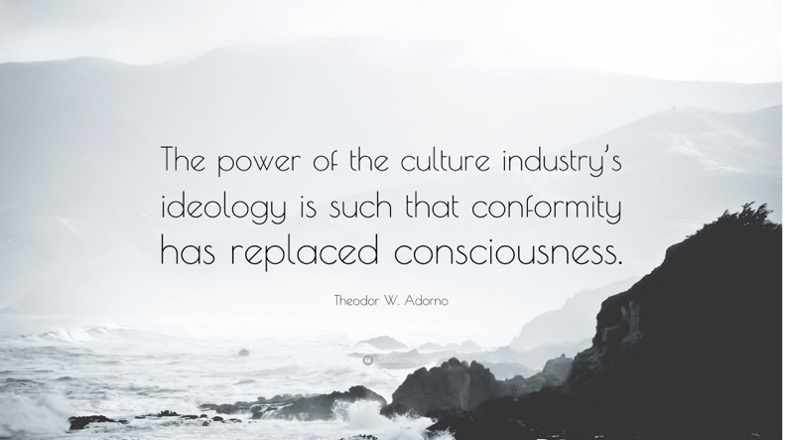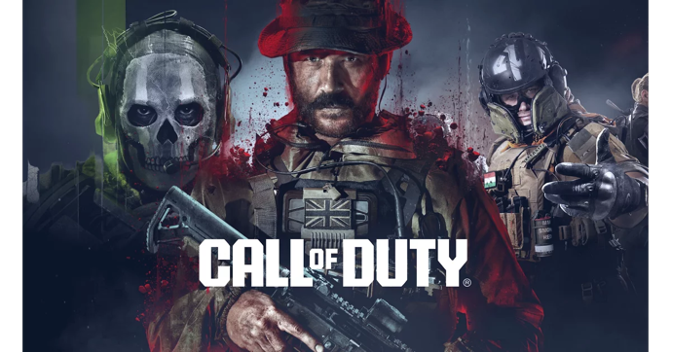What do we mean by ‘Culture Industry‘?
The ŌĆśCulture IndustryŌĆÖ is a concept viewed by Adorno and Horkheimer, who believe that ŌĆ£Culture today is infecting everything with samenessŌĆØ (Durham, 2006). What they mean is that the entertainment industry has changed and focuses more on making a profit, from video games with the same concept to songs that sound similar. They also state that entertainment-related things, such as movies, video games, or songs, are now mass-consumed products. However, Adorno and Horkheimer also believe a ŌĆ£cycle of manipulation and retroactive need unifies the system even more tightlyŌĆØ(Durham, 2006). This statement refers to how this industry manipulates society by making them think they will be satisfied with a product by only focusing on creating a profit with ongoing products.
I will be focusing on the video game industry, where many players get manipulated by big companies to make them buy a game every year.┬Ā
Call of Duty and The Culture Industry
The franchise ŌĆ£Call of DutyŌĆØ, owned by Microsoft (as they own Activision Blizzard), is one perfect example of the Culture Industry, where many players consume their products. The franchise debuted in 2003 and, during those 20 years, has achieved $30 billion in sales and 425 million premium copies sold. However, over the last few years, the franchise hasnŌĆÖt made significant changes to its games, as they have started to look quite similar. One of their best-selling sagas, “Modern WarfareŌĆØ, launched again in 2019, is an example of the repetitiveness Adorno and Horkheimer mention in their concept of the Culture Industry. The difference between ŌĆ£Modern Warfare 2ŌĆØ and ŌĆ£Modern Warfare 3ŌĆØ is very little, as they look like the same game. Here is a comparison between the two games:
According to Game Rant, Modern Warfare 3 became the worst-rated game in Call of Duty History. After its release, many players saw recycled content from the previous game released a year before.┬Ā┬ĀHowever, the game had strong sales during its launch week as it became the best-selling game on Steam and the UKŌĆÖs top-selling physical title for the week before its official release.
Now, the real question is: how did it manage to make all these sales when players knew the gameplay would be identical to the previous one? The answer is pretty simple. ItŌĆÖs how this Culture Industry works. This industry keeps society controlled by giving them an invalid feeling of satisfaction. The sector also manipulates society into buying the following product: going back to Call of Duty, that game contains a campaign mode that most of the audience plays. By releasing a sequel, the audience can be tempted to buy it, even if the quality of the storyline is poor, as they want to know how the story will progress.┬Ā
Bibliography:
- Corinne Reichert (2023) CNET. Avaliable at: https://www.cnet.com/tech/microsoft-now-owns-activision-blizzard-what-it-means-for-your-favorite-games/
- Dean Takahashi (2023) GamesBeat. Avaliable at: https://venturebeat.com/games/why-call-of-duty-has-lasted-20-years-and-how-to-make-it-last-longer-rob-kostich/
- Dominik Bo┼Īnjak (2023) GameRant. Avaliable at: https://gamerant.com/call-of-duty-modern-warfare-3-launch-week-mw3-sales-data/
- Durham, Meenakshi Gigi (2006) Media and cultural studies: keyworks. Wiley-Blackwell
- Quotefancy – Theodor W. Adorno Quotes. Avaliable at: https://quotefancy.com/quote/1062379/Theodor-W-Adorno-The-power-of-the-culture-industry-s-ideology-is-such-that-conformity-has



I like the way you explained the culture industry, what it is and the quote that you used, ŌĆ£cycle of manipulation and retroactive need unifies the system even more tightlyŌĆØ. The use of the video was a good idea to explain how call of duty can be linked to the culture industry.
I think you couldŌĆÖve explained a bit on the video, what differences you saw. Also IŌĆÖd like a conclusion aswell.